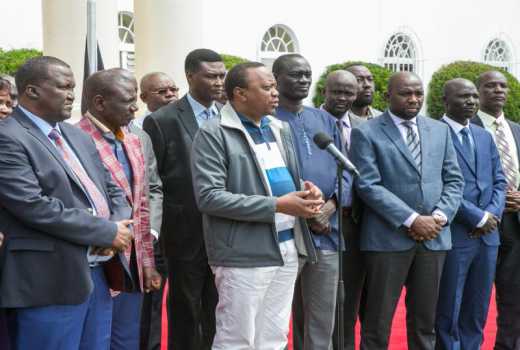×
The Standard e-Paper
Join Thousands Daily

The first convoy of trucks ferrying crude oil produced from the fields of Turkana are expected to leave Lokichar on June 1.
This comes after State House struck a deal with the County Government of Turkana on sharing of oil revenues that clears the way for the implementation of the Early Oil Pilot Scheme (EOPS).